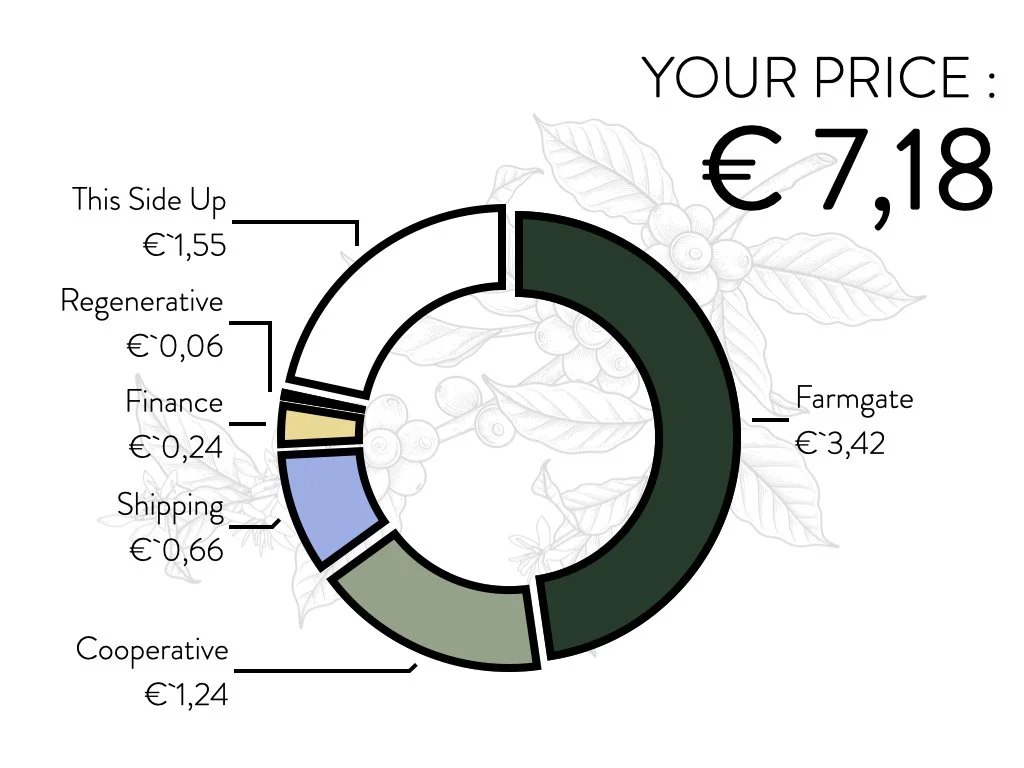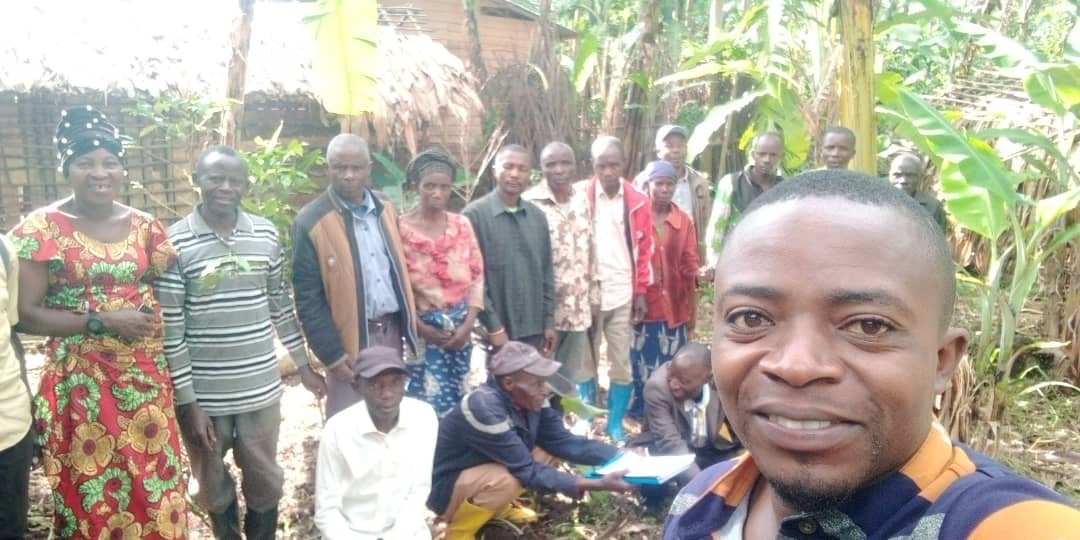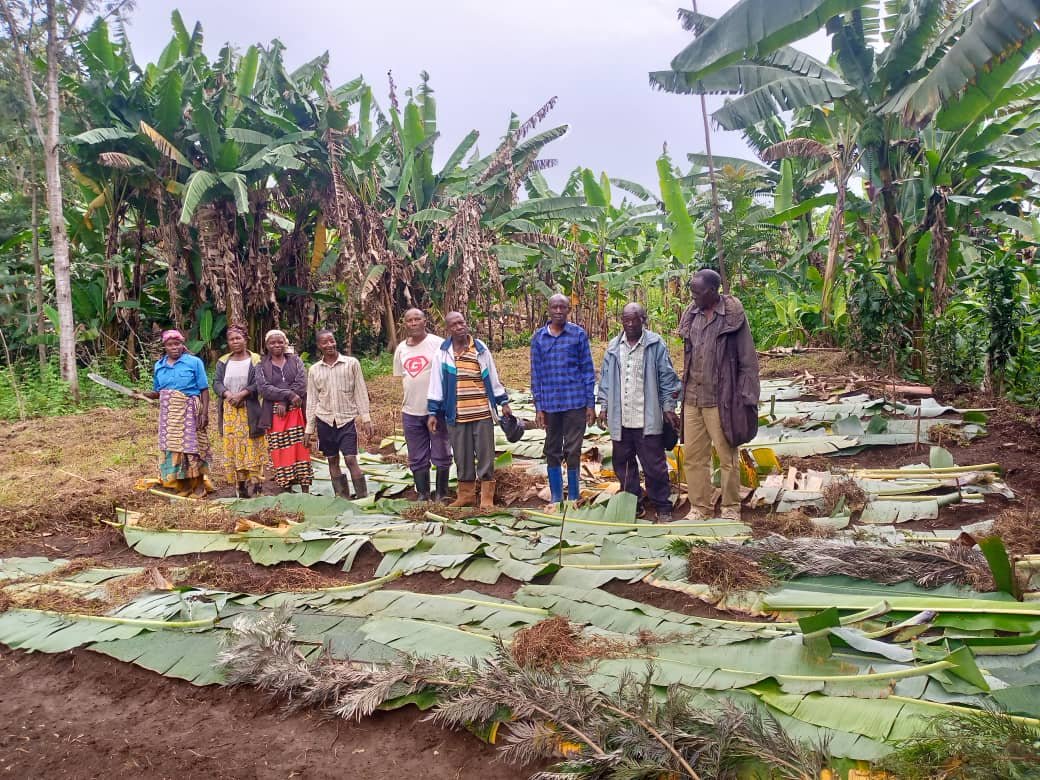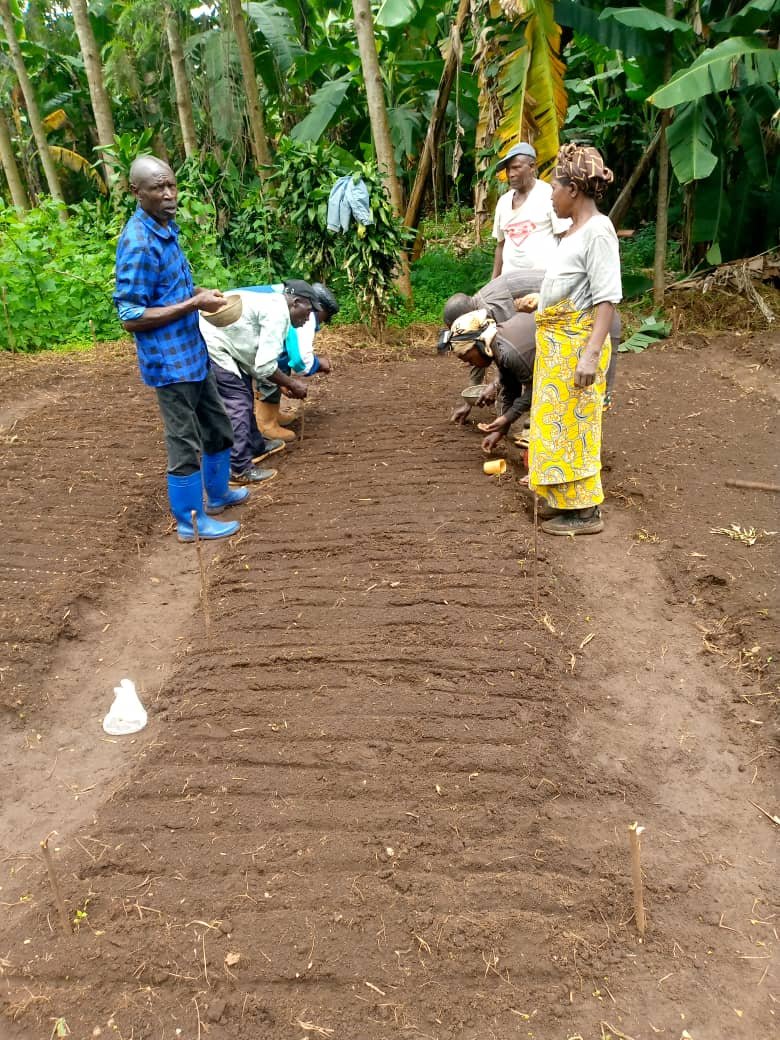gathering the Outgrowers
Next to our main lot from Katana, RAEK also does its best to source coffees from Kavumu, the area surrounding their main headquarters and Kahuzi national park. This lot differs from Katana in that these coffees are bought as parchment from home pulping and drying installations, resulting in somewhat lower quality due to lower processing consistency - resulting in an affordable yet still very much specialty grade coffee.
A consequence of the political instability in the region is the threat of the Kahuzi Biega National Park, which is very near RAEK's scope of action. The displacement of thousands of people represents a severe threat to the Park's integrity. Sadly, populations of large mammals in the Park have declined dramatically. Since the Park does not have a designated buffer zone, the cooperation of the villagers is crucial.
For this reason, RAEK organises awareness days for coffee growers surrounding the Park to fight against poaching, train on the use of shade trees in coffee plantations, and have a system for collecting waste and creating fertilisers for the Kavumu outgrowers by separating the organic materials from this waste. They also organise the collection of plastic waste while promoting the use of organic waste and evolved reforestation practices that are transforming the local ecosystem.
CULTIVARS
Arabica JBM (a type of Typica) and Bourbon (Jackson)
ELEVATION
1,400 to 1,700 meters
NOTABLE
RAEK sensitises coffee producers near The Kahuzi Biega National Park to fight against poaching. It encourages them to grow shade trees on their farms and fight against chemical and plastic waste.
Agro-ecological practices are encouraged to boost coffee productivity by implementing sustainable soil fertilisation.
PROCESSING
Naturals: contrary to our Katana lot, the Kavumu coffees are home processed using hand pulpers and makeshift drying equipment. Like the Katana lot, the naturals are sun-dried and consistently turned to achieve the lowest possible amount of defects.
CUPPING NOTES
-
The price you pay for the Kavumu natural p/kg. We agreed on this price directly with the farmers, disregarding the volatile US Coffee C price.
-
The price RAEK pays farmers for their cherries as p/kg price of green (milled) coffee. This includes a second payment which we started distributing from 2022 onwards.
-
RAEK's management, wet-processing costs and export fee + Jambo Safari's dry milling fee.
RAEK exported too low volumes to break even so these costs do not cover their total operating costs. The local interest on financing for the cooperative was about 9% on the farm gate per kg.
-
Total overland logistics costs from Goma, Congo to Mombasa, Kenya and shipping costs to Rotterdam.
-
This Side Up compensation for spending time and resources importing this coffee. Our work includes year-round contact with producers, managing export, shipping, import, warehousing, grading, sampling, finding and keeping roasting partners for RAEK. € 1,55 is This Side Up’s Model 1 markup. For a full overview of our modular margin construction, see the Trade Models page.
-
Average financing cost owed to (mostly social) lenders. This ensures immediate payment to the farmers when the coffee leaves the farm or port.
-
A standard TSU premium on all coffees designated exclusively to accelerate farmers’ own regenerative agriculture projects. RAEK created an extensive plan on how to spend this premium, as can be seen here (document in French).
PHOTO GALLERY
You may use these images freely to promote RAEK among your customers.



















